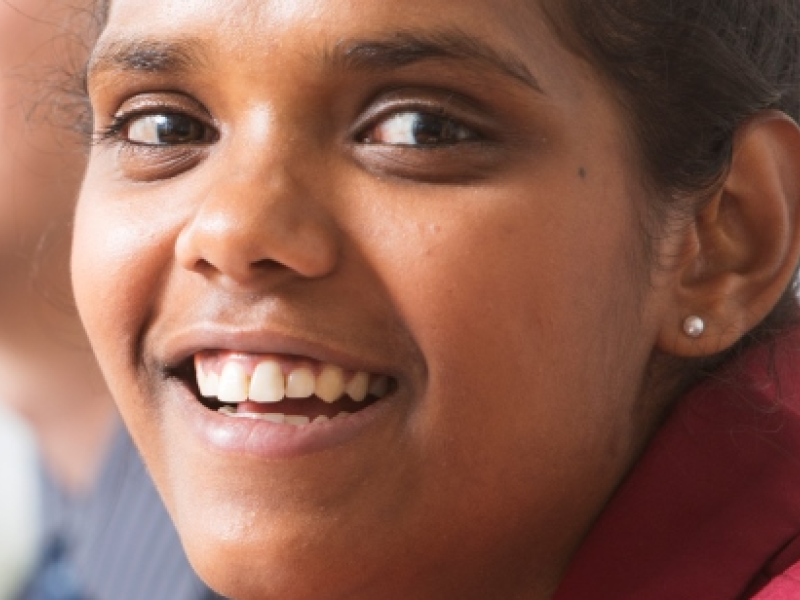Nearly half of the support staff in Mind Australia’s psychosocial support programs in South Australia are peer practitioners - trained mental health practitioners who have had their own lived experience of mental ill-health.
Mind, one of the largest providers of community-managed psychosocial services in Australia, launched its Lived Experience Strategy 2021-2024 last year setting a target for 20 per cent of its total workforce to be peer practitioners by 2024. Mind is already ahead of schedule to meet this target.
Denise Cumming, Mind’s Executive Director of Operations for South Australia, said peer-led psychosocial support services are vital within the mental health system.
“Mind’s psychosocial support services provide support that engenders hope for clients, that they can live a life of purpose on their terms,” Ms Cumming said.
“Mind is a leader in peer and lived experience innovation. We support and contribute to new approaches of service design that are led by people with lived experience of mental ill-health.”
Psychosocial supports – like the kind provided by Mind Australia – help people with mental health and wellbeing issues manage daily activities, rebuild and maintain connections, engage with education and employment, and participate fully in the community. These are supports which help people take positive steps in their recovery journey.
Ms Cumming said practitioners with lived experience have a unique ability to gain the trust of clients and “inspire the confidence needed to take positive steps in their mental health recovery journey”.
“We have seen evidence of this over many years. Mind is committed across our many mental health services to ongoing strong partnership work with lived experience leaders and organisations across the sector.”
Mind’s lived experience record in South Australia
Brett Williams, Mind’s General Manager for South Australia, said Mind staff in designated lived experience roles actively draw on their lived experience of mental ill-health in their work to support clients, fellow peer practitioners and other staff.
“We’ve had peer practitioners for many years and over time we’ve recognised the need to embed lived experience roles in all levels of operational leadership across the organisation,” Mr Williams said.
“That’s what the target set in our Lived Experience Strategy is all about.”
In South Australia:
- Mind’s psychosocial programs have achieved a 900 per cent increase in designated Peer Practitioner and Lived Experience leadership roles since March 2021.
- 75 per cent of program level leadership staff in Mind’s psychosocial programs are in designated Lived Experience roles.
- Two of the 10 Mind psychosocial programs are 100 per cent staffed by Peer Practitioners led by a designated Lived Experience team leader
- Another two programs are 75 per cent and 66 per cent staffed by designated Peer Practitioners
- These four programs also have designated Lived Experience team leader roles.
Professional development is part of a Mind peer practitioner’s journey. Practitioners complete an internal peer workforce program when they first start, designed to ground them in the core principles of peer work. They are then supported to develop professionally and encouraged to progress to leadership roles.
The one-to-one coaching and mentoring peer practitioners receive inside the organisation is supplemented by a community of practice and reflective practice groups.
The peer practitioner experience
Cassi Strauss, 35, works as a Mind peer practitioner in different support programs in South Australia supporting clients with mental health and wellbeing concerns including schizophrenia, eating disorders, suicidal ideation, Alcohol and other Drugs, and anxiety.
“I think the biggest things peer practitioners provide are empathy and validation,” Ms Strauss said.
“Unless you’ve lived through something yourself, you can’t quite understand the rollercoaster that it can be.”
Ms Strauss said clients tell her the services are a place to “be heard and feel safe”.
“It’s somewhere that’s less clinical, especially for people who present to Emergency regularly. Those services are designed to deal with the crisis that’s happening in the moment, but they can’t deal with what’s underneath. This can result in people re-presenting instead of getting to the root cause. That’s where we can make a difference.”
Ms Strauss was inspired to become a peer practitioner after learning how to manage PTSD and anxiety after a bout of cancer. She went to a psychologist for support and found them very helpful.
“Having someone neutral to talk to was really helpful in validating what I was feeling and helped me regain control,” Ms Strauss said.
This experience, and wanting to help her son when bullying affected his mental health, inspired Cassi to complete a Bachelor of Psychology and undertake training as a peer practitioner with Mind.
“Clients tell me they feel understood and they don’t feel judged and they can share more because they know that I have my own history. They’re also more willing to take on my suggestions - because I’ve been in their shoes and they’ve worked for me, they are more willing to try them.”.
Cassi loves her work supporting other people on their recovery journey.
“It’s just great to be able to go to work knowing that something amazing’s going to come out of the day,” Cassi said.
Some Mind services in South Australia which feature peer practitioners include:
- Country Wellness Connections provides supports across a range of life domains to clients in the Riverland area who are experiencing mental health issues. More details
- Integrated Complex Care provides support to clients with complex needs including mental ill-health, alcohol and other drugs, and risk of homelessness. More details
- Southern Housing and Accommodation Support Partnership provides psychosocial supports to complex clients in partnership with a community housing provider and community mental health clinical teams. More details
If you would like more information about Mind services, please contact us via Mind Connect or by phone: 1300 286 463
If this article raises concerns for you, please call Lifeline on 13 11 14. Aboriginal and Torres Straits Islanders can also call 13 YARN (13 92 76) a 24/7 national crisis support telephone service staffed by Aboriginal and Torres Strait Islander peoples.
